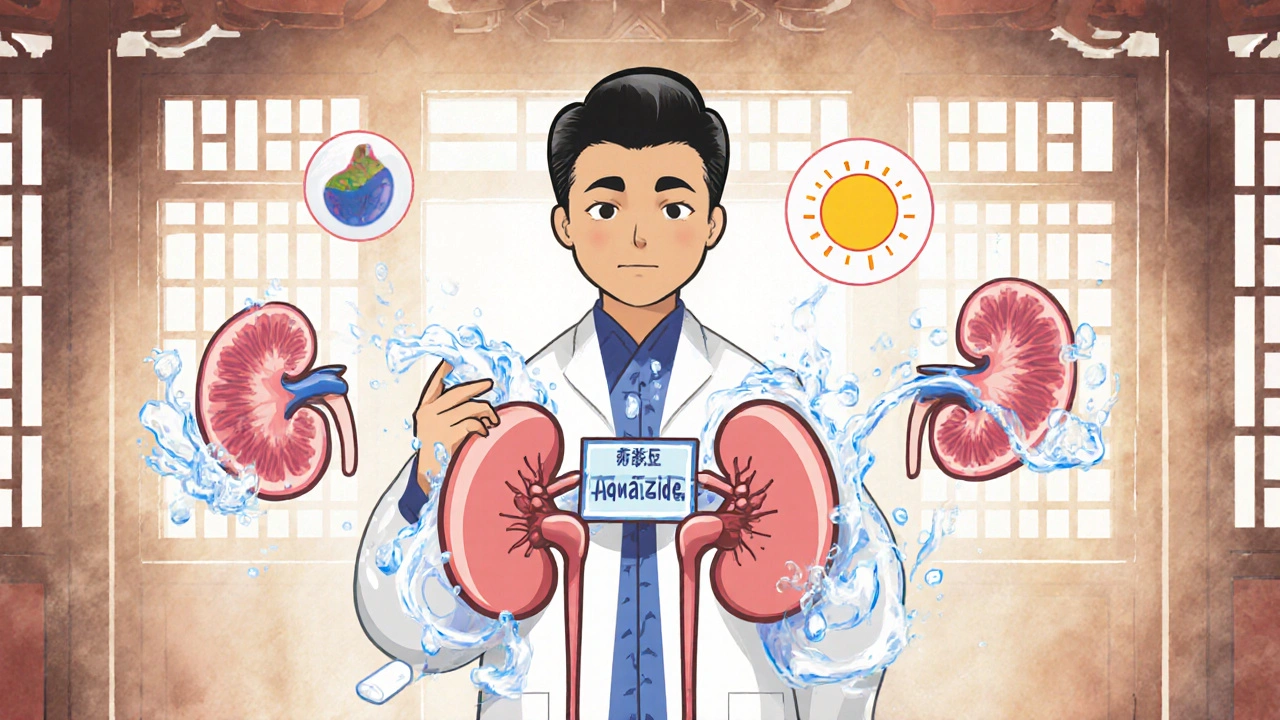Diuretic Alternatives: Natural and Medication Options for Fluid Balance
When you’re dealing with fluid retention, swelling, or high blood pressure, diuretics, medications that help your body get rid of extra fluid through urine. Also known as water pills, they’re often prescribed to ease symptoms—but not everyone can or wants to take them long-term. Whether it’s due to side effects, cost, or a preference for gentler approaches, many people turn to natural diuretics, foods and herbs that support kidney function and reduce fluid buildup naturally as a safer, everyday alternative.
Some of these work surprisingly well. For example, dandelion leaf, parsley, and hibiscus tea have been studied for their ability to increase urine output without draining essential electrolytes like potassium. Cucumber, watermelon, and celery are also high in water and contain compounds that gently stimulate the kidneys. Unlike synthetic diuretics, which can cause cramps or dizziness, these options work slowly and often come with added nutrients. People managing mild hypertension or swelling from sitting too long often find relief just by adjusting their diet. Meanwhile, if you’re on a prescription diuretic but want to reduce the dose, talking to your doctor about combining it with these foods can be a smart step—just don’t swap them out without medical advice.
There’s also a growing interest in electrolyte balance, the careful regulation of sodium, potassium, and magnesium levels to support healthy fluid movement in the body. Many people mistake bloating for water weight and reach for strong diuretics, when what they really need is better mineral intake. Low magnesium, for instance, can cause your body to hold onto water. Fix that, and the puffiness often fades. This is why some of the best diuretic alternatives aren’t herbs or pills at all—they’re simple dietary shifts: more leafy greens, nuts, bananas, and less processed salt.
The posts below give you real-world comparisons and practical advice. You’ll find clear breakdowns of how certain medications like NSAIDs or corticosteroids can actually cause fluid retention, making you need more diuretics in the first place. Others show how herbal remedies stack up against pills, what works for swelling in the legs versus bloating in the belly, and how to avoid dangerous interactions. Whether you’re looking to cut back on prescriptions, manage side effects, or just feel lighter without drugs, these guides give you the facts—not hype.

Compare Aquazide (Hydrochlorothiazide) with Alternatives: What Works Best for High Blood Pressure and Fluid Retention
Aquazide (hydrochlorothiazide) is a common blood pressure and diuretic medication. Learn how it compares to alternatives like loop diuretics, potassium-sparing drugs, and other antihypertensives - and which might be better for your health needs.